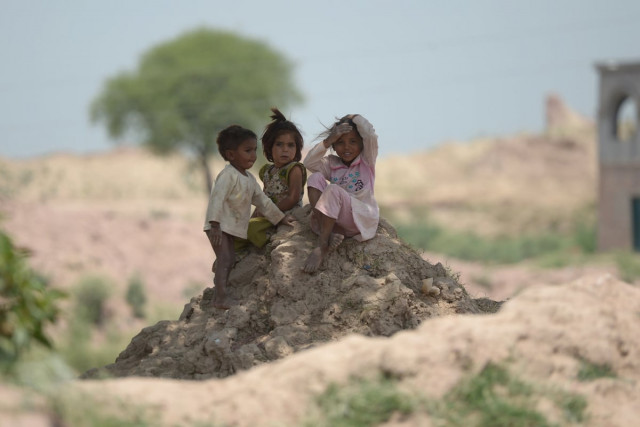World Prematurity Day: High preterm births linked to malnutrition
A malnourished mother ultimately gives birth to a premature baby due to poor health condition

PHOTO: AFP
Chronic malnutrition among women of child bearing age is one of the major reasons behind 750,000 preterm births recorded every year across Pakistan.
Dr Saima Rizwan, Health Specialist, Maternal and Child Health at United Nations Children’s Fund (Unicef) while talking to The Express Tribune in connection with World Prematurity Day which is observed every year on November 17, said, “a malnourished mother ultimately gives birth to a premature baby due to poor health condition. Adequate maternal nutrition is critical for foetal development.” Pre-term birth is defined as a live birth before the full 37 weeks of pregnancy are completed.
High malnutrition rate affecting economy
She said malnourished mothers suffer from micro-nutrient deficiencies such as iron deficiency which leads to anemia while iodine, vitamin A, folic acid and calcium deficiencies among others render them unable to deliver healthy children well on time.
However, Dr Rizwan further stated that there are also numerous other reasons which could be attributed to preterm births in Pakistan such as early child marriages, domestic violence, severe stress, lack of antenatal checkups, unskilled birth attendants among others.
“In Pakistan majority of adolescent mothers give birth to premature babies mainly because they are unaware of nutritional needs during pregnancy, importance of antenatal checkups and quality care required during delivery of a premature baby” she said.
Experts urge measures to end malnutrition
Globally, fifteen million babies are born preterm each year and over 1 million children die before their fifth birthday from related complications. Pakistan, India and Nigeria account for more than 60 per cent of the total number of babies born prematurely each year and 50 per cent of deaths due to preterm complications according to a statement issued by UNICEF.
“It is estimated that the survival of around 85 per cent of premature babies could be ensured if they receive quality care at home such as initiation of early breastfeeding,” Dr Rizwan said, adding that usually a premature baby grows up facing lifelong disabilities like hearing, visual and learning impairments.
She also highlighted acute shortage of skilled birth attendants and community mid-wives (CMWs) in the country.
EU extends aid of €4m for fighting malnutrition
Meanwhile talking to The Express Tribune, Director Nutrition in the Ministry of National Health Services, Dr Baseer Khan Achakzai, said Pakistan is among top 10 countries with 16 per cent premature babies which is alarming.”
Published in The Express Tribune, November 18th, 2015.



















COMMENTS
Comments are moderated and generally will be posted if they are on-topic and not abusive.
For more information, please see our Comments FAQ